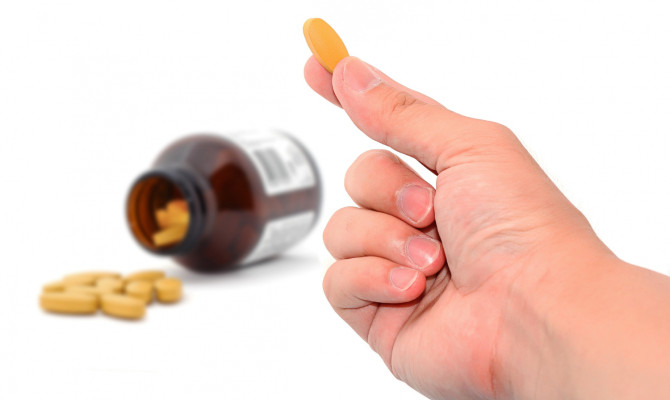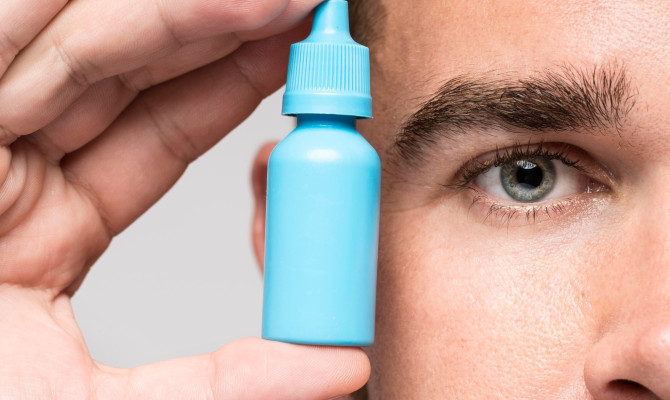Cabometyx: Exploring the Uses, Side effects and Interactions

- Cabometyx
- 22 Aug 2023
Overview
What is Cabometyx?
Cabometyx is a kinase inhibitor, a class of enzyme inhibitor that inhibits the action of some protein kinases. For advanced kidney carcinoma, cabometyx and nivolumab may be administered together. Also, used to treat liver cancer when a particular anticancer drug (sorafenib) is no longer able to halt the progression of the disease.
Adult patients with differentiated thyroid carcinoma that is locally progressed or metastatic and has not responded to radioactive iodine or anticancer drug therapy are also treated with cabometyx.1Overview| Researched based study from Medsafe.govt.nz ,2Overview| Researched based study from Drugs.com

Uses
What is Cabometyx used for?
Cabometyx is used in adults to treat:
- Renal Cell Carcinoma
- Hepatocellular carcinoma (HCC)
Renal Cell Carcinoma
- Patients who have advanced renal cell carcinoma (RCC) may benefit from cabometyx treatment.
Hepatocellular carcinoma (HCC)
- Adults who have previously had sorafenib therapy can use cabometyx as a monotherapy to treat hepatocellular carcinoma (HCC).1Uses| Researched based study from Medsafe.govt.nz ,3Uses| Researched based study from Medicines.org.uk
Mechanism of action of cabometyx
- The drug cabometyx inhibits the activity of proteins known as receptor tyrosine kinases (RTKs), which are crucial for cell growth and the formation of new blood vessels that supply it. These proteins can be found in high concentrations in cancer cells, and by inhibiting their activity, this medication can help stop the blood supply that the cancer needs while also slowing the tumor’s growth.
- On occasion, cabometyx is administered along with the immunotherapy drug nivolumab. It aids immune cells in locating and eliminating cancer cells that are hiding. The effectiveness of cabometyx + nivolumab in treating advanced kidney cancer can be increased.4Uses| Researched based study from Cabometyx.com
Side effects
Side effects of Cabometyx
This medication may have side effects, however not everyone experiences them. Your doctor might advise you to take cabometyx at a reduced dose if you have side effects. In order to assist you manage your side effects, your doctor might possibly recommend different medications.
Common side effects
- Reduced appetite, changed taste perception
- Dizziness and headache
- Bleeding
- Reduced thyroid activity can cause symptoms like fatigue, weight gain, constipation, feeling chilly, and dry skin
- High blood pressure (hypertension)
- Shortness of breath, coughing, hoarseness (dysphonia), and difficulty speaking
- Pain, swelling, or redness in the mouth or throat (stomatitis)
- Stomach disturbance, including diarrhea, indigestion, cramping, nausea, vomiting, and abdominal pain
- Itching, blisters, soreness in the hands or soles of the feet, and redness are all symptoms of skin rash
- Pain in the legs, feet, arms, or hands
- Experiencing fatigue or weakness, oral and gastrointestinal mucosal irritation, and arm and leg swelling
- Loss of weight
Serious side effects
If any of these symptoms occur, contact with your doctor right away because you must stop taking your medicine. Your physician will then suggest how to discontinue the treatment:
- Constipation, nausea, vomiting, abdominal discomfort, and fever are some of symptoms. These could be symptoms of gastrointestinal perforation, which is when a hole forms in your stomach or intestine and could be fatal
- Experiencing fatigue, confusion, or losing consciousness, which can be the result of liver issues
- Breathing difficulties or swelling
- Signs of severe or uncontrollable bleeding include dark feces, bloody urine, headache, and bloody coughing
- Signs posterior reversible encephalopathy (such as headaches, confusion, fits, or difficulty concentrating)
- Pain in the mouth, teeth, or jaw as well as mouth or tooth inflammation or sores, jaw numbness or a heavy sensation. These signs of bone loss in the jaw, or osteonecrosis, may be present.3Side effects| Researched based study from Medicines.org.uk
Contraindications of cabometyx
- If you are hypersensitive to cabozantinib or any other ingredients of this medication1Side effects| Researched based study from Medsafe.govt.nz
Precautions
Warnings and Precautions
If you have any of the following ailments or issues before taking cabometyx, let your doctor know:
- If you previous had or have an aneurysm (blood vessel wall enlargement and thinning) or a tear in the wall of blood vessel
- You experienced major bleeding recently
- You have high blood pressure
- If you’ve recently undergone surgery (or if you have any planned surgeries), including dental surgery
- Have diarrhea
- Had recently experienced a heart attack, stroke, or a leg-related blood clot
- Suffer from an inflammatory bowel disease, such as appendicitis, diverticulitis, crohn’s disease, or ulcerative colitis
- Experience issues with the liver or kidneys
- Having thyroid issues. When taking this medication, let your doctor know if you feel colder than usual, get tired more quickly, or have a deeper voice 3Precautions| Researched based study from Medicines.org.uk
Precautions to special population
Pregnancy
- Pregnancy should be avoided while taking cabometyx.
- Use reliable contraception if you or your partner could become pregnant during treatment or for at least four months after it is over. If you use this medicine, discuss the best methods of birth control with your doctor.
- If you or your partner become pregnant while using this medication, or if you have any plans to do so, inform your doctor as soon as you can.
Breast-feeding
- Women taking this drug shouldn’t breastfeed while they are receiving treatment and for at least 4 months after it has stopped since it’s possible that cabozantinib and/or its metabolites will be excreted in breast milk and harm your child.
Children
- Children and teenagers should not use cabometyx. It is unknown what this medication will do to anyone under the age of 18.
Elderly
- It is not advised to modify the dosage of cabozantinib while administering it to older people (those over 65 years of age). 3Precautions| Researched based study from Medicines.org.uk , 5Precautions| Researched based study from Ema.europa.eu
Interactions
Interactions of Cabometyx
Drug interactions
Many medications can interact with cabometyx, and some medications shouldn’t be taken concurrently. Tell your health care provider about all other medications you are taking. This includes vitamins, herbal goods, and prescription and over-the-counter medications.
- Medications used to treat epilepsy and fits includes phenobarbital, carbamazepine, and phenytoin
- The medications rifampicin, erythromycin, and clarithromycin, which are used to treat bacterial infections.
- Ranolazine is a medication used to treat angina pectoris (a condition that results in chest pain from a heart that receives less blood).
- Fexofenadine, a medication used to treat allergies.
- St. John’s Wort (herbal supplement) used to treat depression-related illnesses like anxiety or depression
- Medication used to prevent the formation of blood clot includes warfarin and dabigatran.
- Ambrisentan, aliskiren, digoxin, talinolol, and tolvaptan are some of the medications used to treat high blood pressure and other cardiac diseases
- Saxagliptin and sitagliptin are medications for diabetes
- The medications ritonavir, efavirenz, maraviroc, and emtricitabine are used to treat HIV and AIDS
- Cyclosporin and ciclosporin-based regimens for psoriasis and rheumatoid arthritis are drugs used to reduce transplant rejection
- Colchicine is a medication for gout should not administer with cabometyx. 1Interactions| Researched based study from Medsage.govt.nz
Disease interactions
High Blood Pressure
- Cabozantinib usage raises blood pressure. Before initiating treatment with cabozantinib, blood pressure should be well managed to the desired level. It should then be monitored and maintained with normal anti-hypertensive therapy as necessary.
Thromboembolism
- Cabozantinib treatment has been associated with both arterial and venous thromboembolic events. If a patient is at risk or has a history of similar instances, use cautious while administering drugs to them.
- he warning signs and symptoms of thromboembolism should be constantly monitored.
- Treatment with cabozantinib should be discontinued if patient experiences acute myocardial infarction or any other arterial thromboembolic event
Hepatic impairment
- Mild to moderate hepatic impairment individuals are at increased exposure risk to cabozantinib, according to established studies.
- Dose reduction of cabozantinib is needed in individuals with mild to moderate liver impairment. Cabozantinib is not recommended in individuals with severe impairment. Throughout treatment, it is advised to routinely check urine bilirubin levels and the liver’s functioning.
Renal impairment
- Dose modification is not necessary in individuals with mild to moderate kidney impairment.
- Patients who have severe renal impairment have not been the subject of any trials on cabozantinib. These patients require special attention.
RPL syndrome
- In patients using cabozantinib, reversible posterior leukoencephalopathy syndrome (RPLS) has been documented. Treatment should be discontinued in individuals with RPLS. It is unknown whether restarting therapy in patients who have previously experienced RPLS is safe. These patients require special consideration and close monitoring. 2Interactions| Researched based study from Drugs.com
Food interactions
- Avoid grapefruit-containing products while you are taking this medication because they may cause your blood levels of cabometyx to increase.1Interactions| Researched based study from Medsage.govt.nz
Takeaway
Takeaway tips
- Take cabometyx without food. Take cabometyx at least one hour prior to or at least two hours following a meals
- Do not start any new prescription medications, over-the-counter medications, or herbal therapies without first consulting your doctor
- Even if you are feeling better, do not stop taking this medication unless your doctor instructs you to do so.
- Your capacity to have children may be impacted by cabometyx potential for causing reproductive issues in both males and females. If you are worried about your fertility, speak with your doctor
- If you suffer any adverse reactions while using cabometyx, let your doctor know right away since in some cases, the medication must be stopped until the side effect has subsided.
- Consult a doctor if your symptoms or health problems do not go away or get worse.
Any feedback on this article?
 This Articles content was accurate
This Articles content was accurate Very Informative Article
Very Informative Article I have a question or a comment
I have a question or a comment
 This article contains inaccurate content
This article contains inaccurate content This article was not helpful
This article was not helpful I have a question or a comment
I have a question or a comment
We appreciate your helpful feedback!
Checkout our social pages
References
-
MedSafe
CABOMETYX® | Overview | Uses | Interactions
-
Drugs.com
Cabometyx | Overview | Interactions
-
Electronic medicines compendium
Cabometyx | Uses | Side effects | Precautions
-
Cabometyx Hand Book
CABOMETYX (cabozantinib)-Information | Uses
-
European Medicines Agency
Cabometyx-Summary Of Product Characteristics. | Precautions






































